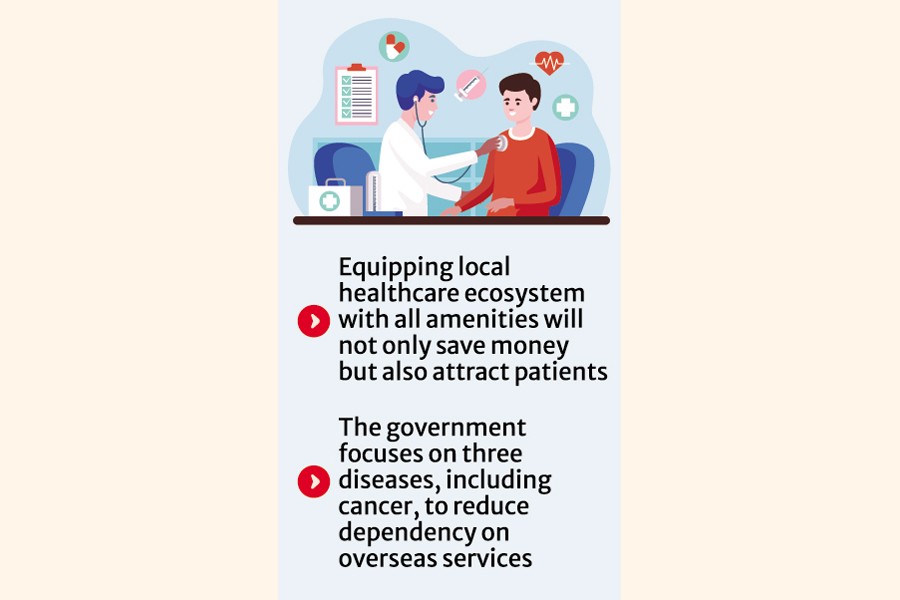A significant number of Bangladeshi patients spend a large sum of money every year visiting other countries mainly due to mistrust, poor behaviour, and a lack of transparency in health expenses, experts said.
Enabling the local healthcare ecosystem equipped with all amenities will not only save the money but also attract patients from other countries, they said.
They were addressing a roundtable discussion titled “Overseas Medical Treatment: Way of Outcome,” organised by the Bangladesh Private Medical College Association (BPMCA) at the CIRDAP auditorium in the city’s Topkhana road on Saturday.
Secretary to Medical Education and Family Welfare Division Md. Sarwar Bari attended the event as the chief guest while BPMCA President MA Mubin Khan chaired the event.
Health Education Department Director General Professor Dr. Nazmul Islam, Bangladesh Medical and Dental Council Vice-President Dr. Md. Zafrullah Chowdhury, and Registrar of Bangladesh Health Education Accreditation Council Professor Dr. Md. Humayun Kabir Talukder were present as special guests.
Speaking on the occasion, Dr. Sarwar Bari said that the government’s goal is to ensure equitable healthcare services. “As our current healthcare system has limitations, efforts are underway to make it more efficient,” he said.
The government is focusing on three diseases, including cancer, to reduce reliance on foreign services, with the other two to be announced soon, he added.
In his speech, Dr. Zafrullah laid emphasis on training support staff, improving their behaviour, and ensuring transparency in treatment cost to bolster public trust in local medical service providers.
President of the National Press Club Hasan Hafiz said Indian visa limitation could help Bangladesh strengthen its local healthcare services.
“Once we were dependent on Indian livestock, but we became self-reliant after India stopped sending cows here. In the same way, there is now an opportunity for us to strengthen our healthcare system,” he said.
Dr. Nazmul Islam said a patient doesn’t go abroad for treatment without any reason. “However, many people believe that going to Singapore or other countries for treatment is a matter of prestige,” he said.
He underscored the need for further investment from private sector, turning problems into opportunity, introducing health insurance, decentralising healthcare services from Dhaka, adopting behavioural science practices, and establishing a good referral system.
Sharing official data, he said around Tk 100 billion was spent on medical treatment abroad in the fiscal year 2018-19. Of this, 84 per cent were working-age individuals (16-55 years old) with businesspeople being the largest group. India and Thailand were the most popular destinations followed by Singapore.
Mr Mubin Khan underscored the need to improve healthcare infrastructure and diagnostic capabilities.
“Ensuring modern medical equipment and building world-class specialised hospitals in major cities is essential for diagnosing and treating complex diseases,” he said.
Though there are no specific statistics, more than 0.8 million people are believed to go to more than 19 countries, including India, Singapore, and Thailand, for treatment every year.

